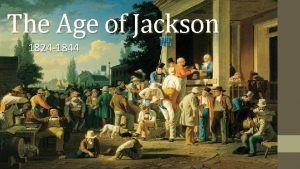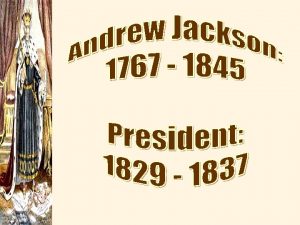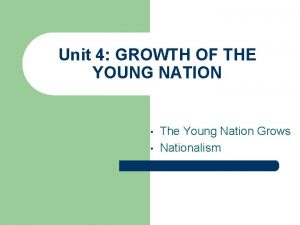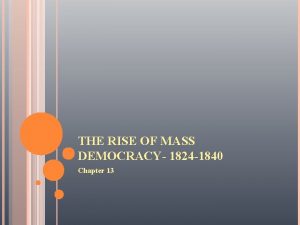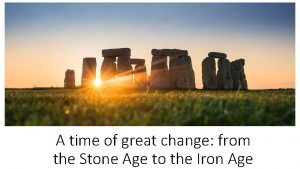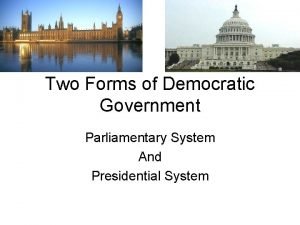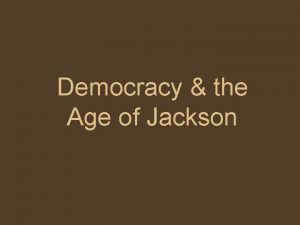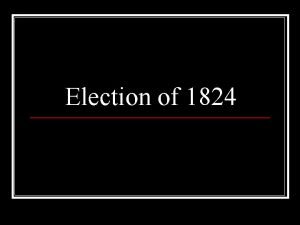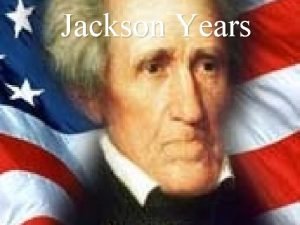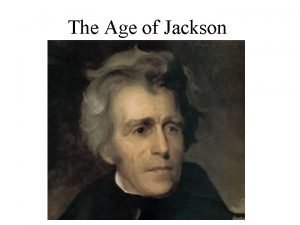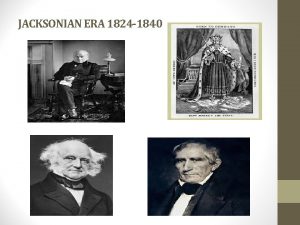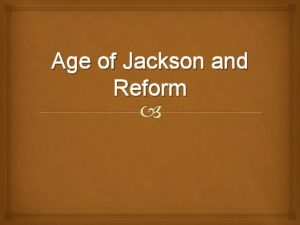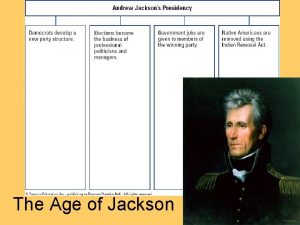Democracy the Age of Jackson Election of 1824










- Slides: 10

Democracy & the Age of Jackson

Election of 1824 (The Corrupt Bargain) • Four Democratic-Republican candidates – Henry Clay – Andrew Jackson – William Crawford – John Quincy Adams

Henry Clay • Represented West (Kentucky) • American System – 2 nd National Bank – Tariff – Internal Improvements

Andrew Jackson • Represented West (Tennessee) • War Hero – Battle of New Orleans – Spanish Florida

William Crawford • Represented South (Georgia) • Cabinet Member • Supported States’ Rights

John Quincy Adams • Represented North (Massachusetts) • Agreed with American System except internal improvements • Very similar to Clay

Election Results • • Nobody wins majority of electoral votes Jackson gets more popular votes Goes to House of Representatives Clay throws support to Adams and then becomes Secretary of State under Adams • “Corrupt Bargain”—Clay helps Adams win and in return gets Cabinet post

John Quincy Adams • Presidency was defined by spending money (some view it as being wasteful) • Adams seemed to bring Federalist ideas back to the White House (failure) • Jackson was infuriated by losing in 1824 after getting the most popular votes

“Jacksonian Democracy” • Jackson emphasized majority rule and the “common man” • Represented American opportunity to succeed (anti-aristocratic) • Jackson had moved to the West (Tenn. ) where he became a lawyer and planter

Election of 1828 • Jackson defeats Adams with 56% of popular vote and 66% of electoral vote • Supporters called themselves “Democrats” • Emphasis on “common man”
